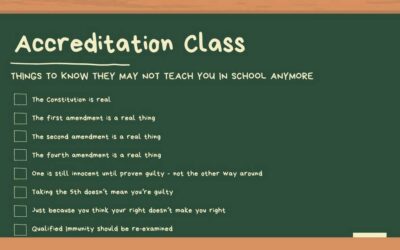Navigating the Witness Box: A Look at Michigan Rules of Evidence 601-615
In the courtroom, witness testimony plays a crucial role in unveiling the truth and determining the outcome of a case.
However, not everyone can simply walk into the courtroom and take the stand.
Michigan Rules of Evidence 601-615 establish a framework for determining who can testify, what they can say, and how their testimony is presented. This article delves into these rules, providing a factual overview based on the Michigan Rules of Evidence Handbook.
Have your rights been violated?
Have your driving priviledges been revoked?
Has your professional license been suspended?
Second Amendment rights taken away?
Have you been charged with a crime?
Call our office to see if we can help
Komorn Law 248-357-2550
Rule 601: Competency to Testify
This fundamental rule establishes a presumption of competency, stating that “every person is competent to be a witness.” This means that anyone, regardless of age, background, or mental capacity, can potentially take the stand. However, the rule also acknowledges exceptions. The court may find someone incompetent to testify if they lack “sufficient physical or mental capacity or sense of obligation to testify truthfully or understandably.” This determination usually involves questioning the witness and assessing their ability to perceive, recall, and communicate relevant information accurately.
Rule 602: Need for Personal Knowledge
Just because someone is competent doesn’t mean their testimony is automatically admissible. Rule 602 requires witnesses to have “personal knowledge” of the matters they are testifying about. This means they must have directly observed, heard, or experienced the events they are describing. Hearsay, or secondhand information, is generally not admissible under this rule. However, there are exceptions for certain types of hearsay evidence, such as business records or statements made under specific circumstances.
Rule 603: Oath or Affirmation
Before taking the stand, every witness must swear or affirm to tell the truth. This oath or affirmation serves to impress upon the witness the importance of their testimony and the potential consequences of lying. The form of the oath or affirmation can be adapted to accommodate the witness’s religious beliefs or cultural background.
Rule 604: Interpreter
When a witness doesn’t speak English fluently, an interpreter is needed to ensure accurate communication. Rule 604 requires interpreters to be qualified and to take an oath or affirmation to faithfully translate the witness’s testimony. The court has the discretion to appoint and supervise the interpreter to ensure fairness and accuracy.
Rule 605: Judge’s Competency as a Witness
To maintain impartiality and prevent conflicts of interest, Rule 605 prohibits the presiding judge from testifying as a witness in the same case. This applies even if the judge has relevant personal knowledge of the events in question. If the judge becomes a necessary witness, they must recuse themselves from the case.

Rule 606: Juror’s Competency as a Witness
Similar to the judge, Rule 606 restricts juror testimony in certain situations. Jurors may not testify before the other jurors during the trial, as this could influence their deliberations. Additionally, during an inquiry into the validity of a verdict or indictment, jurors are barred from testifying about their own mental processes or the deliberations of the jury. This protects the sanctity of the jury room and prevents tampering with the verdict.
Rule 610: Ruling on Hearings on Competency and Privilege
When questions arise about a witness’s competency or a claim of privilege, the court conducts a hearing outside the presence of the jury. This allows the judge to make a fair and informed ruling without influencing the jury’s perception of the witness or the evidence.
Rule 611: Mode and Order of Examining Witnesses
Rule 611 governs the manner in which witnesses are questioned. It allows each party to present their case through direct examination of their own witnesses and cross-examination of the opposing party’s witnesses. The court also has the authority to question witnesses to clarify or expand on their testimony.
Rule 612: Writing Used to Refresh Memory
Sometimes, witnesses may need to refresh their memory before or during their testimony. Rule 612 allows witnesses to use writings, such as notes, memoranda, or recordings, to recall past events. However, these writings themselves are not admissible as evidence unless they qualify under another rule.
Rule 613: Prior Statements of Witnesses
In certain circumstances, prior statements made by a witness outside of court can be used to impeach their credibility or explain inconsistencies in their testimony. Rule 613 outlines the conditions under which these prior statements can be admitted as evidence.
Rule 614: Calling and Examining Adverse Parties
This rule allows a party to call the opposing party as a witness during their own case. Additionally, it permits thorough questioning of the adverse party, even on matters that may be unfavorable to the party calling them.
Rule 615: Excluding Witnesses
To ensure fairness and prevent witnesses from tailoring their testimony to what they have heard from others,
Important:
This article provides a simplified overview of the Michigan Rules of Evidence for informational purposes only. It should not be interpreted as legal advice. When facing legal matters, always consult with a qualified attorney for professional guidance.
The Michigan Rules of Evidence are subject to change over time. Always consult the latest official version for accurate information.
Here is the link to the Michigan Rules of Evidence Handbook. Check the footer for the latest update.
Related Articles
No Results Found
The page you requested could not be found. Try refining your search, or use the navigation above to locate the post.
More Posts

US court upholds ban on selling guns to marijuana card holders
SAN FRANCISCO — A federal ban on the sale of guns to medical marijuana card holders does not violate the Second Amendment, a federal appeals court said Wednesday. The ruling by the 9th U.S. Circuit Court of Appeals applies to the nine Western states that fall under...
AVVO Ratings and Reviews Update Aug 2016
Michael Komorn’s reviews 5.0 stars - 23 Total Avvo Rating: 10.0 out of 10 Cases dismissed 5.0 stars Posted by Ryan August 24, 2016 I had two charges in Wayne county. I was facing 6 years in prison. Michael was very informative and reassuring...

US Dept of Justice letter regarding prosecution for marijuana
Attorney General Eric Holder's speech regarding dropping mandatory minimums for many drug crimes is already making an impact. Read the letter from the DOJ

Clio marihuana dispensary fighting Genesee County Prosecutor’s office in court
CLIO (WJRT) - (04/25/16) - A Mid-Michigan marihuana dispensary is fighting the Genesee County Prosecutor's office in court after FANG shut them down. The owner of the Clio dispensary says warrants weren't valid and he wants his business back open. Attorneys...

New Roadside Drug Test
What is the law? The Michigan legislature has passed into law a one-year pilot program set up in five counties that allows for Michigan State Police to perform roadside drug tests. The way this will work is if a driver gets pulled over for a traffic offense, in...

Why Are Michigan Prosecutors Reassessing Their Cases Against Medical Marijuana Patients?
Trying to understand why prosecutors in St. Clair County, Michigan, suddenly decided to drop their case against Ginnifer Hency, a medical marijuana patient and caregiver, and return the property that police seized from her home, I obtained several court documents from...

Attorney: Crime labs ‘falsified’ marijuana reports
A Southfield lawyer alleges the Michigan State Police crime labs have “falsified lab reports on marijuana statewide” and he’s asking a judge to dismisses charges lodged against a client. Michael Komorn, who also represents defendants in Livingston County, said...

Clio marihuana dispensary fighting Genesee County Prosecutor’s office in court
CLIO (WJRT) - (04/25/16) - A Mid-Michigan marihuana dispensary is fighting the Genesee County Prosecutor's office in court after FANG shut them down. The owner of the Clio dispensary says warrants weren't valid and he wants his business back open. Attorneys...

Medical marijuana patients reunited with son after lengthy court battles, unfounded drug charges
SPRING LAKE, Mich. -- After 18 months, a Spring Lake family's son is out of foster care and reunited with his parents. Yet the fight to be together, through court battles and serious drug charges despite being card-carrying medical marijuana patients, still haunts...

Komorn Law Secures Release Of Lorincz Child From CPS in Marijuana Custody Case
“This is one of those cases in an attorney’s career that is not easily forgotten, and is a reminder to me of the reason I became an attorney.” – Michael Komorn, attorney from Komorn Law and recipient of the Michigan Bar Association Right to Counsel Award for 2015....








